 Individual rare diseases may affect only a few people, making them difficult to recognize, diagnose or treat by studying humans alone. Instead, model organisms help to validate genetic associations, understand functional pathways and develop therapeutic interventions for rare diseases. In this Editorial, we point to the key parameters in face, construct, predictive and target validity for accurate disease modelling, with special emphasis on rare disease models. Raising the experimental standards for disease models will enhance successful clinical translation and benefit rare disease research. The full article you can find here.
Individual rare diseases may affect only a few people, making them difficult to recognize, diagnose or treat by studying humans alone. Instead, model organisms help to validate genetic associations, understand functional pathways and develop therapeutic interventions for rare diseases. In this Editorial, we point to the key parameters in face, construct, predictive and target validity for accurate disease modelling, with special emphasis on rare disease models. Raising the experimental standards for disease models will enhance successful clinical translation and benefit rare disease research. The full article you can find here.
Featured posts
 Atypical hemolytic-uremic syndrome (aHUS) is a rare, potentially lethal systemic disorder, capable of affecting both adults and children, causing thrombotic microangiopathy (TMA) that leads to the formation of thrombus within small blood vessels with multiple organ failure. The pathogenesis of the aHUS is part of a sort of chronic and uncontrolled activation of the complement system by genetic mutation of some proteins usually responsible for its self-regulation. Today, the rapid diagnosis of the disease and the timely start of treatment with eculizumab, improve outcomes of renal failure, stroke and heart attack. Fabry disease is a rare tesaurismosis, X linked, due to the deficiency of the lysosomal enzyme alpha-galactosidase A, necessary for the physiological catabolism of glycosphingolipids. Multisystem clinical manifestations lead to a serious degenerative pathology. The diagnostic suspicion based on anamnesis and careful research of the symptoms and then confirmed by the enzymatic dosage of alpha galactosidase or by molecular analysis, allows the early treatment of the patient with enzyme replacement therapy, guaranteeing the resolution and/or slowing down the evolution of the disease, especially in the brain, heart and kidneys. In this report, we describe the clinical case of a patient who is a carrier of both rare diseases. Everything regarding the case, you can find here.
Atypical hemolytic-uremic syndrome (aHUS) is a rare, potentially lethal systemic disorder, capable of affecting both adults and children, causing thrombotic microangiopathy (TMA) that leads to the formation of thrombus within small blood vessels with multiple organ failure. The pathogenesis of the aHUS is part of a sort of chronic and uncontrolled activation of the complement system by genetic mutation of some proteins usually responsible for its self-regulation. Today, the rapid diagnosis of the disease and the timely start of treatment with eculizumab, improve outcomes of renal failure, stroke and heart attack. Fabry disease is a rare tesaurismosis, X linked, due to the deficiency of the lysosomal enzyme alpha-galactosidase A, necessary for the physiological catabolism of glycosphingolipids. Multisystem clinical manifestations lead to a serious degenerative pathology. The diagnostic suspicion based on anamnesis and careful research of the symptoms and then confirmed by the enzymatic dosage of alpha galactosidase or by molecular analysis, allows the early treatment of the patient with enzyme replacement therapy, guaranteeing the resolution and/or slowing down the evolution of the disease, especially in the brain, heart and kidneys. In this report, we describe the clinical case of a patient who is a carrier of both rare diseases. Everything regarding the case, you can find here.
 Fanconi anemia is a rare, cancer-prone disease with mutations in 22 genes. The primary defect results in altered DNA repair mechanisms that fuel a severe proinflammatory condition in the bone marrow, leading to cellular depletion of the hematopoietic system and eventually to bone marrow failure. During the past three decades, a plethora of dysfunctions have been highlighted in the Fanconi anemia phenotype, but recent research allows us to glimpse an even more complex scenario where defective lipid metabolism could have important consequences in hematopoietic stem cell differentiation. The full article you can find here.
Fanconi anemia is a rare, cancer-prone disease with mutations in 22 genes. The primary defect results in altered DNA repair mechanisms that fuel a severe proinflammatory condition in the bone marrow, leading to cellular depletion of the hematopoietic system and eventually to bone marrow failure. During the past three decades, a plethora of dysfunctions have been highlighted in the Fanconi anemia phenotype, but recent research allows us to glimpse an even more complex scenario where defective lipid metabolism could have important consequences in hematopoietic stem cell differentiation. The full article you can find here.
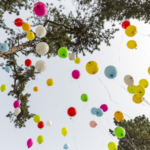 Everywhere in Bulgaria, the Rare Disease Day will be marked with raising hands and releasing balloons as a sign of solidarity with the problems of the people affected by rare diseases. On 28th of February at 13:00 we all together will show our empathy in the central part of the cities, honoring the day.
Everywhere in Bulgaria, the Rare Disease Day will be marked with raising hands and releasing balloons as a sign of solidarity with the problems of the people affected by rare diseases. On 28th of February at 13:00 we all together will show our empathy in the central part of the cities, honoring the day.
In Rousse – in front of the Rousse University ‘Angel Kanchev’, 2nd housing on ‘Studentska’ 8 street.
In Haskovo – in the Affiliate Haskovo of Trakia University on ‘Saedinenie’ 48 boulevard.
In Kyustendil – in front of the Municipal Polyclinic on ‘Yavor’ 6 street.
In Velingrad – in front of Multi-profile Hospital for Active Medical Treatment ‘Zdrave’ on ‘Saedinenie’ 49 boulevard.
In Rakitovo – in front of church ‘Sveta Nedelya’.
In Svilengrad – in front of Kinder Garden ‘Detstvo’.
In Sandanski – on ‘Bulgaria’ square.
In Radomir – on ‘Batenberg’ square.
In Silistra – on ‘Svoboda’ square.
In Vratsa – on ‘Hristo Botev’ square.
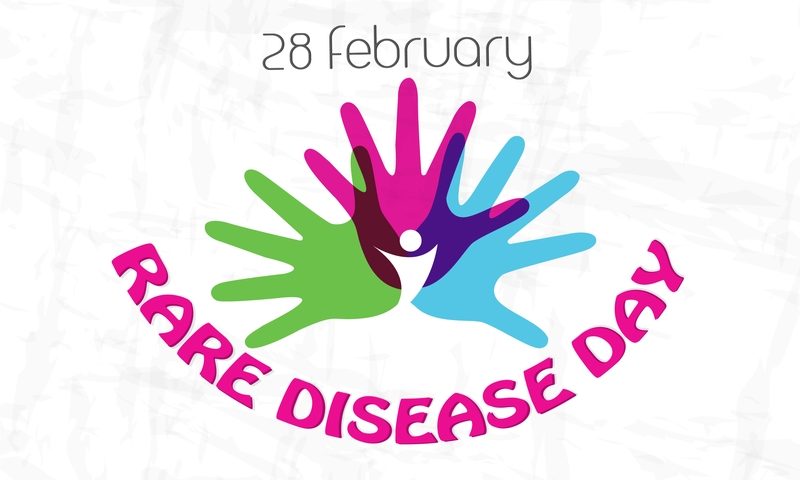 The Rare Disease Day is commemorated for 7th consecutive year in Sliven under the leadership of the president of the National Mucopolysaccharidosis Association – Desislava Hristakeva. The event is supported by the institutions in the face of the mayor of Sliven Mr. S. Radev and Deputy Mayor from the health care sector Pepa Tschilikova. With the kind participation of volunteers from the Red Cross, representatives of Association of thalassemia patients, students from Medical University of Varna – Sliven Affiliate, as well as the Principal of the Affiliate – assoc. prof. I. Dimitrov, md and the Deputy Principal assoc. prof. I. Aleksandrov, md, the children from the Day Care Center for Children with Disabilities ‘Sveti Stiliyan Detepazitel’. At 12:00 it is organized an informational campaign and at 13:00 patients, their families and friends will raise hands and will release balloons as a sign of solidarity with the problems of the people affected by rare diseases.
The Rare Disease Day is commemorated for 7th consecutive year in Sliven under the leadership of the president of the National Mucopolysaccharidosis Association – Desislava Hristakeva. The event is supported by the institutions in the face of the mayor of Sliven Mr. S. Radev and Deputy Mayor from the health care sector Pepa Tschilikova. With the kind participation of volunteers from the Red Cross, representatives of Association of thalassemia patients, students from Medical University of Varna – Sliven Affiliate, as well as the Principal of the Affiliate – assoc. prof. I. Dimitrov, md and the Deputy Principal assoc. prof. I. Aleksandrov, md, the children from the Day Care Center for Children with Disabilities ‘Sveti Stiliyan Detepazitel’. At 12:00 it is organized an informational campaign and at 13:00 patients, their families and friends will raise hands and will release balloons as a sign of solidarity with the problems of the people affected by rare diseases.
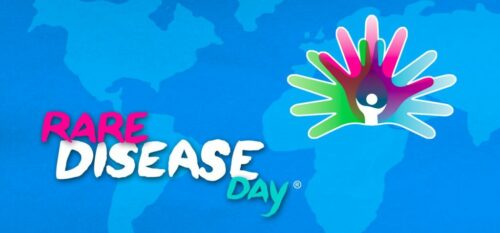 On 28th of February at 11:00 in Shumen a prayer will be served for all people with rare diseases in front of the chapel ‘Sveti Panteleymon’ in Multi-profile Hospital for Active Medical Treatment Shumen. Then with the participation of the students from Shumen Affiliate of Medical University of Varna, leaflets will be handed out. At 13:00 the Rare Disease Day will be marked with raising hands and releasing balloons as a sign of solidarity with the problems of the people affected by rare diseases.
On 28th of February at 11:00 in Shumen a prayer will be served for all people with rare diseases in front of the chapel ‘Sveti Panteleymon’ in Multi-profile Hospital for Active Medical Treatment Shumen. Then with the participation of the students from Shumen Affiliate of Medical University of Varna, leaflets will be handed out. At 13:00 the Rare Disease Day will be marked with raising hands and releasing balloons as a sign of solidarity with the problems of the people affected by rare diseases.
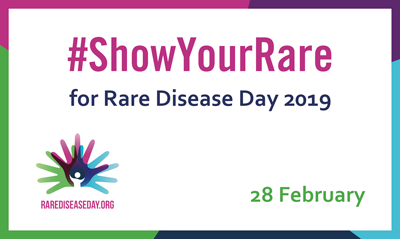 On 28th of February at 13:00 on ‘Vuzrazhdane’ square in Pleven the Rare Disease Day will be marked with raising hands and releasing balloons as a sign of solidarity with the problems of the people affected by rare diseases. And on 3rd of March at 15:00 will be served a prayer in ‘Sveti Georgi Pobedonosets’ church.
On 28th of February at 13:00 on ‘Vuzrazhdane’ square in Pleven the Rare Disease Day will be marked with raising hands and releasing balloons as a sign of solidarity with the problems of the people affected by rare diseases. And on 3rd of March at 15:00 will be served a prayer in ‘Sveti Georgi Pobedonosets’ church.
 On 23rd of February in Stara Zagora is organized Teddy Bear Hospital in Kalitinovo village in ‘The house of family and community’. On 24th in Mall Galleria is organized a face painting and an informational campaign. And on 28th of February at 13:00 in front of the municipality, as a sign of solidarity with the problems of the people affected by rare diseases, the attendees will mark the day with raising hands and releasing balloons.
On 23rd of February in Stara Zagora is organized Teddy Bear Hospital in Kalitinovo village in ‘The house of family and community’. On 24th in Mall Galleria is organized a face painting and an informational campaign. And on 28th of February at 13:00 in front of the municipality, as a sign of solidarity with the problems of the people affected by rare diseases, the attendees will mark the day with raising hands and releasing balloons.
 On 28th of February at 10:00 in Plovdiv a prayer will be served by Metropolitan Nikolai in the Plovdiv Metropolis and after that in the Medical University of Plovdiv, a tree will be decorated with the names of different kinds of rare diseases. In front of the municipality on ‘Stefan Stambolov’ square, at 13:00, the Rare Disease day will be marked with raising hands and releasing balloons as a sign of solidarity with the problems of the people affected by rare diseases.
On 28th of February at 10:00 in Plovdiv a prayer will be served by Metropolitan Nikolai in the Plovdiv Metropolis and after that in the Medical University of Plovdiv, a tree will be decorated with the names of different kinds of rare diseases. In front of the municipality on ‘Stefan Stambolov’ square, at 13:00, the Rare Disease day will be marked with raising hands and releasing balloons as a sign of solidarity with the problems of the people affected by rare diseases.
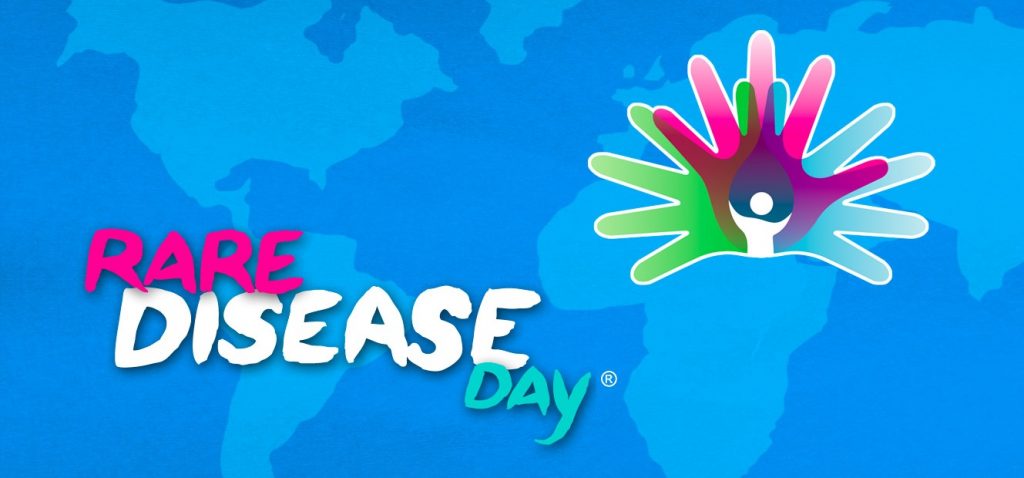 On 28th of February at 11:30 in Sofia in the National Assembly will take place a solemn ceremony honoring the Rare Disease Day 2019. At 13:00 this day will be marked with raising hands and releasing balloons as a sign of solidarity with the problems of the people affected by rare diseases.
On 28th of February at 11:30 in Sofia in the National Assembly will take place a solemn ceremony honoring the Rare Disease Day 2019. At 13:00 this day will be marked with raising hands and releasing balloons as a sign of solidarity with the problems of the people affected by rare diseases.
